There’s been lots of speculation going around the various blog sites about the release of a new version of Microsoft’s Xbox 360.
 Yesterday Microsoft confirmed that the Xbox 360 Elite is a real product and will begin arriving in US stores on 29 April with an expected retail price of $480.
Yesterday Microsoft confirmed that the Xbox 360 Elite is a real product and will begin arriving in US stores on 29 April with an expected retail price of $480.
The confirmed spec of the 360 Elite is a combination of a 120Gb hard drive, new accessories bundled in, and to all of those HD TV fans, an HDMI port built in. Oh, and a return to a black case like the original Xbox. Microsoft tell us that the retail price of all of the bundled bits is over $600 if bought separately.
The HDMI port is an interesting move – yes it will make it simpler to get High Def screens connected (if you have a screen with an HDMI in port), but importantly it will let Elite owners play protected HD-DVD discs on the long-discussed add-on HD-DVD drive. HDMI connection is needed for the HDCP content protection scheme.

The new, large hard drive is a big step up from the previous version of 20Gb to 120Gb – all the more space for Microsoft to sell you TV shows, films and software to download – oh … and save you game positions to as well of course.
The hard drive is detachable and will also be sold separately so standard Xbox users will be able to get hold of them too. Expected US price is $180.
Alongside the goodies above are an Xbox 360 Wireless Controller in black and a headset, in … err, black. Do you get the black theme? There’ll be a couple of other new bits available separately too, a Play & Charge kit for the the wireless controller ($20) and a black rechargeable battery ($12)
 Peter Moore, Corporate Vice President – Interactive Entertainment Business, Microsoft, turned the hyperbole meter way up to deliver the following, “Today’s games and entertainment enthusiast has an insatiable appetite for digital high-definition content. Xbox 360 Elite’s larger hard drive and premium accessories will allow our community to enjoy all that the next generation of entertainment has to offer.”
Peter Moore, Corporate Vice President – Interactive Entertainment Business, Microsoft, turned the hyperbole meter way up to deliver the following, “Today’s games and entertainment enthusiast has an insatiable appetite for digital high-definition content. Xbox 360 Elite’s larger hard drive and premium accessories will allow our community to enjoy all that the next generation of entertainment has to offer.”
It’s worth noting that the first shots of the Elite, while looking slightly underground, are in fact taken by ‘Major Nelson,’ the pseudonym for Larry Hryb, Xbox Live Director of Programming. So ‘leaked’ photos are now coming from official sources!
Images courtesy of Major Nelson
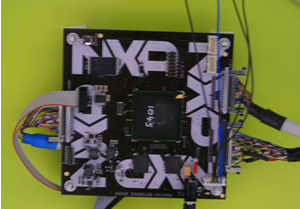 If you thought that HD TV was the best picture you’re ever going to see, think again. The release of 100/120 Hz Full HD TVs gives you a pretty clear idea that the market is moving again.
If you thought that HD TV was the best picture you’re ever going to see, think again. The release of 100/120 Hz Full HD TVs gives you a pretty clear idea that the market is moving again.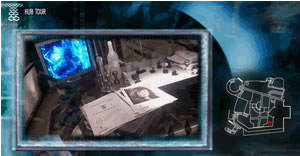 The BBC Dr Who Spin-off, Torchwood, set and shot in Cardiff, Wales, has been sold to US TV network HDNet.
The BBC Dr Who Spin-off, Torchwood, set and shot in Cardiff, Wales, has been sold to US TV network HDNet.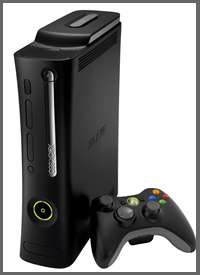 Yesterday Microsoft confirmed that the Xbox 360 Elite is a real product and will begin arriving in US stores on 29 April with an expected retail price of $480.
Yesterday Microsoft confirmed that the Xbox 360 Elite is a real product and will begin arriving in US stores on 29 April with an expected retail price of $480.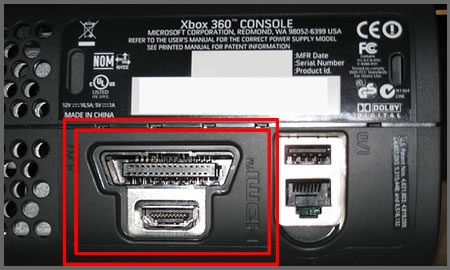
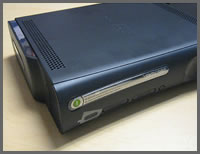 Peter Moore, Corporate Vice President – Interactive Entertainment Business, Microsoft, turned the hyperbole meter way up to deliver the following, “Today’s games and entertainment enthusiast has an insatiable appetite for digital high-definition content. Xbox 360 Elite’s larger hard drive and premium accessories will allow our community to enjoy all that the next generation of entertainment has to offer.”
Peter Moore, Corporate Vice President – Interactive Entertainment Business, Microsoft, turned the hyperbole meter way up to deliver the following, “Today’s games and entertainment enthusiast has an insatiable appetite for digital high-definition content. Xbox 360 Elite’s larger hard drive and premium accessories will allow our community to enjoy all that the next generation of entertainment has to offer.” Despite a
Despite a 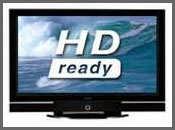 HDForAll are a pressure group made up of TV manufacturers, retailers and public service broadcasters including DSGI, Samsung, Sony and Toshiba and BBC, ITV, Channel 4 and Five. They’re keen to remind people that there’s only a limited amount of time left to contact Ofcom to make their views known on auctioning off spectrum to the highest bidder. Background on this and how to respond are available on
HDForAll are a pressure group made up of TV manufacturers, retailers and public service broadcasters including DSGI, Samsung, Sony and Toshiba and BBC, ITV, Channel 4 and Five. They’re keen to remind people that there’s only a limited amount of time left to contact Ofcom to make their views known on auctioning off spectrum to the highest bidder. Background on this and how to respond are available on 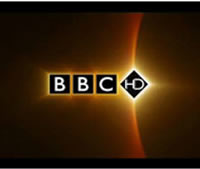 Following the trial in London, HD TV over Freeview has been judged as a success after the six months that it’s been running.
Following the trial in London, HD TV over Freeview has been judged as a success after the six months that it’s been running. Simon Fell, Director of Technology, ITV Consumer was upbeat, “We have conclusively demonstrated that HD services can run effectively alongside standard Freeview broadcasts. All major technical hurdles are behind us, and collectively we can focus on potentially providing services for the forecasted sales of 10 million flat screen TVs by 2010.”
Simon Fell, Director of Technology, ITV Consumer was upbeat, “We have conclusively demonstrated that HD services can run effectively alongside standard Freeview broadcasts. All major technical hurdles are behind us, and collectively we can focus on potentially providing services for the forecasted sales of 10 million flat screen TVs by 2010.” Sony and Sky are tying up to show the UK’s first HD advert tonight.
Sony and Sky are tying up to show the UK’s first HD advert tonight. Shot over 10 days and with a crew of 250 people, the paint was mixed on site by 20 people. The clear up took 5 days and 60 people.
Shot over 10 days and with a crew of 250 people, the paint was mixed on site by 20 people. The clear up took 5 days and 60 people.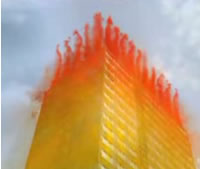 The launch of this first HD ad follows a major marketing agreement between Sky and Sony to promote HD.
The launch of this first HD ad follows a major marketing agreement between Sky and Sony to promote HD. A survey released by Best of Stuff suggests that nearly a third of Brits own up to 15 gadgets.
A survey released by Best of Stuff suggests that nearly a third of Brits own up to 15 gadgets.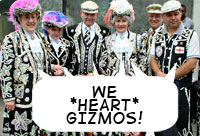 The trusty ol’ gogglebox came in a close second with 27 per cent of the vote, and 46 per cent of those surveyed reckoned that the fabbest new innovation in the market is HDTV.
The trusty ol’ gogglebox came in a close second with 27 per cent of the vote, and 46 per cent of those surveyed reckoned that the fabbest new innovation in the market is HDTV. But it’s not all love-love-love in the world of gizmos, with 40 per cent of respondents declaring themselves disappointed with their gadget’s battery life, pointing the finger of blame at MP3 players, laptops and mobile phones as the worst offenders.
But it’s not all love-love-love in the world of gizmos, with 40 per cent of respondents declaring themselves disappointed with their gadget’s battery life, pointing the finger of blame at MP3 players, laptops and mobile phones as the worst offenders. Samsung is getting ready to unveil what it reckons is the first 70in HD (high-definition) LCD (liquid crystal display) panel.
Samsung is getting ready to unveil what it reckons is the first 70in HD (high-definition) LCD (liquid crystal display) panel.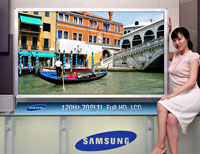 Executive Vice President Kim Sang-Soo of Samsung Electronics was ready to parp his company’s PR trumpet: “Our new 70-inch LCD is not only significantly larger, but also sets a new benchmark of excellence in terms of video image reproduction, viewing angle and image quality. We’ve designed it to dramatically enhance the large screen LCD TV user’s viewing experience. ”
Executive Vice President Kim Sang-Soo of Samsung Electronics was ready to parp his company’s PR trumpet: “Our new 70-inch LCD is not only significantly larger, but also sets a new benchmark of excellence in terms of video image reproduction, viewing angle and image quality. We’ve designed it to dramatically enhance the large screen LCD TV user’s viewing experience. ” One of the challenges facing Stephen Carter’s replacement as head of the UK communications regulator Ofcom, is how the frequency spectrum released by the move to digital terrestrial TV will be allocated. Not only is the decision crucial for Ofcom, who must reconcile both the requirement to allow the market to operate while taking into account the British citizen, but it also figures in the BBC’s strategy around the impending licence settlement and the organisations’ worldwide ambitions.
One of the challenges facing Stephen Carter’s replacement as head of the UK communications regulator Ofcom, is how the frequency spectrum released by the move to digital terrestrial TV will be allocated. Not only is the decision crucial for Ofcom, who must reconcile both the requirement to allow the market to operate while taking into account the British citizen, but it also figures in the BBC’s strategy around the impending licence settlement and the organisations’ worldwide ambitions. How will displays receive the content to create the impetus for a large scale take up? The likely options are; Cable under what is expected to be a Virgin branded offering; Sky who are pushing HD to protect and grow their revenue; the BBC who are committed to both an alternative to Sky on Satellite and providing their content on all viable platforms and broadband, which looks increasingly viable by virtue of higher transfer rates to the home, along with improved digital compression technologies.
How will displays receive the content to create the impetus for a large scale take up? The likely options are; Cable under what is expected to be a Virgin branded offering; Sky who are pushing HD to protect and grow their revenue; the BBC who are committed to both an alternative to Sky on Satellite and providing their content on all viable platforms and broadband, which looks increasingly viable by virtue of higher transfer rates to the home, along with improved digital compression technologies. France, slower off the blocks in moving to a Digital Terrestrial TV service, with its’ amusingly acronym-ed TNT, has a solution that builds in HD capabilities, and for sure the UK will not wish to be seen falling behind mainland Europe.
France, slower off the blocks in moving to a Digital Terrestrial TV service, with its’ amusingly acronym-ed TNT, has a solution that builds in HD capabilities, and for sure the UK will not wish to be seen falling behind mainland Europe.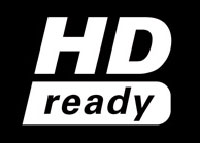 The BBC is making its first steps into the super-crisp world of high definition television (HDTV) with transmissions of Planet Earth and Bleak House in the new format at the end of this month.
The BBC is making its first steps into the super-crisp world of high definition television (HDTV) with transmissions of Planet Earth and Bleak House in the new format at the end of this month. HD TV broadcasts can also beef up the whole big match experience by incorporating 5.1 surround sound and displaying the (Rooney-less) stadium action in widescreen.
HD TV broadcasts can also beef up the whole big match experience by incorporating 5.1 surround sound and displaying the (Rooney-less) stadium action in widescreen.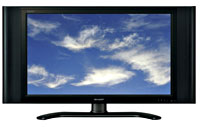 “We really feel that high definition will be the standard definition of the future,” she added.
“We really feel that high definition will be the standard definition of the future,” she added.